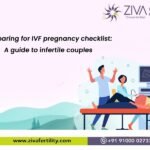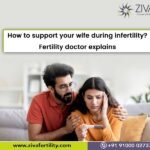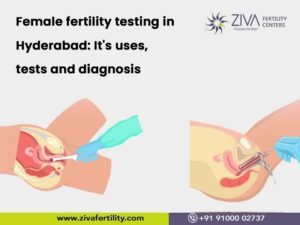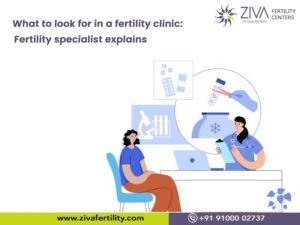Becoming a mother is a massive milestone in a woman’s life. Women nowadays are giving equal importance to careers and their families. Couples want to be financially settled and have a promising career before starting a family. With the changing landscape of a woman’s life, pregnancy requires a lot of planning from both partners. Hence knowing the best age to get pregnant for a woman is crucial. There are a lot of theories regarding the best age for women to get pregnant. So here is the ZIVA fertility doctor’s advice about the best age to get pregnant for a woman.
One of the best advice is to get pregnant only when you are physically, emotionally, mentally, and financially ready. All these factors widely vary between people.
Biologically 20s are the best reproductive age. Though this age is biologically correct when one considers the professional, financial and social aspects, then this age is mainly challenging to manage a baby. Most women are not psychologically ready to take on that responsibility. So most experts and parents agree there is no perfect pregnancy age.
Many conditions play a role in determining the time of pregnancy. If people wait too long to have children, they get sandwiched between caring for children and ageing parents. Waiting for too long also puts biological limits on both partners.
Getting Pregnant Before Age 20
Though this is the age when fertility is at its peak, having children in your teens may not be ideal. There is a risk of preeclampsia for pregnancies at this age. There is also considerable financial stress, and they may still be deciding what to do with their lives.
Getting Pregnant Between Ages 20 to 24
This is also a fertile age, with an 85% chance of getting pregnant within one year. By this age, one might be pursuing a professional course or starting a new job. There might not be significant savings. Solid physical, emotional and financial support from the family might help the new parents cope with parenthood.
Getting Pregnant Between Ages 25 to 29
In medical terms, the chances of pregnancy in the late 20s are almost the same as early 20s. By this time, the couple has achieved more financial and emotional stability. By the time the parents reach their 50s, their offspring would have also settled.
Getting Pregnant Between Ages 30 to 34
The couple gets complete freedom to enjoy their adulthood without the responsibility of children. They can focus on careers and have solid financial backgrounds. But one should not delay much since female fertility starts getting affected after age 30. The quality of eggs reduces, so women take longer to get pregnant. The couple should also have an idea as to how many children they want. If they wish to have only a single child or, at the max, two children, then they can wait till this age. But if they want more children, the couple might be in their late 30s or even early 40s by the time they have the last children. In such cases, they can think of starting early.
Getting Pregnant Between Ages 35 to 39
Couples wishing to conceive at this age should start by consulting a healthcare provider. Expert fertility doctors suggest that even after six months of trying if the couple has not conceived successfully, it is better to visit a fertility specialist. By this age, there could be other health complications, such as hypertension and diabetes, which will increase the risk of preeclampsia and the rates of chromosomal abnormalities. Though this is not certain for all couples, it is still possible.
Getting Pregnant Between Ages 40 to 45
By this age, not only the female fertility but the fertility of the male also starts to reduce. The risk of ectopic pregnancies and miscarriages is higher for women who conceive at this age. The risk of chromosomal abnormality increases with maternal age.
Women who get pregnant after age 40 may suffer from preeclampsia, diabetes, placenta previa, low birth weight, and preterm labour, with a higher rate of fetal demise. With the increased risk of blood pressure, diabetes, or obesity, the pregnancy journey must be monitored carefully.
Late pregnancies in the late 30s and late 40s are on the rise.
How to ensure healthy pregnancy beyond the age of 35?

If women want to have children later, they must start caring for fertility right from the beginning. They should take care of their weight and ensure fitness. Reduced smoking and alcohol consumption also helps in preserving fertility.
Nowadays, more and more women are choosing to freeze their eggs. When the couple is ready to have children, the frozen eggs are retrieved from the banks, thawed, and used for pregnancy.
We are proud to see that at the Ziva fertility clinic, we have helped couples of all age groups to realise the dream of having a child. We are experts in handling hiatus pregnancies, which is usually the case in March for women who conceive after age 35. We also offer couples counselling so that the couples know the reality of having kids at a later age.
For more information, please visit our website Fertility Hospital Hyderabad | Fertility Clinic Near me | Ziva IVF Center (zivafertility.com), or contact us at +91-9100002737, +91-9392834024
















